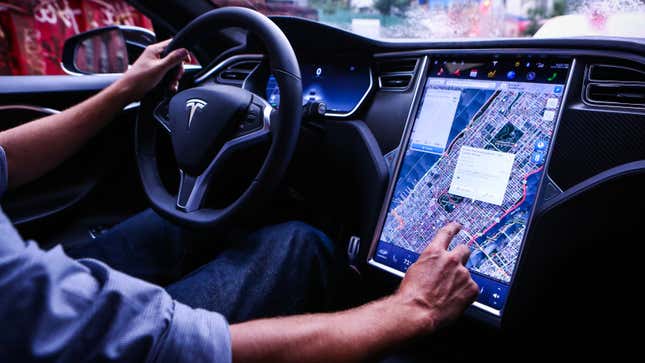
We’re all familiar with the slow takeover of the touchscreen in our cars. First they came for controls like media and air conditioning. Then, with Tesla’s revamp of the interior, touchscreens gradually took on more and more control of our cars. Now, however, buttons may be on the edge of a comeback after new safety rules were outlined in Europe.
Across the pond, regulators are proposing new rules that would mandate the use of physical buttons for certain in-car controls in order for cars to receive the top safety rating available, according to a new report from Hagarty. The requirements would stipulate that essential functions like indicators, hazard warning lights, windscreen wipers, horn and SOS features must be accessed through real buttons in order for cars to be granted Euro NCAP’s five star safety rating.
The new rules, which will come into force in 2026, are designed to reduce distracted driving instances across the bloc. As Hagarty explains:
“The overuse of touchscreens is an industry-wide problem, with almost every vehicle-maker moving key controls onto central touchscreens, obliging drivers to take their eyes off the road and raising the risk of distraction crashes,” explained Matthew Avery, director of strategic development at Euro NCAP.
“New Euro NCAP tests due in 2026 will encourage manufacturers to use separate, physical controls for basic functions in an intuitive manner, limiting eyes-off-road time and therefore promoting safer driving.”
It’s important to note that these new rules won’t mandate the use of buttons for such controls. Instead, automakers that don’t comply will simply not qualify for a five-star safety rating for the cars they sell in Europe. This could mean consumers switch allegiances from one automaker to another in search of the safest ride.
What do you think, though? Is this a good way to keep physical buttons in our cars, and if so should they be required for further functionality behind the wheel? After all, if it’s all in the name of safety and less distracted driving, that’s got to be a good thing, hasn’t it?